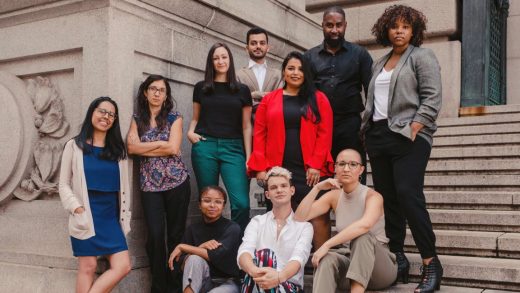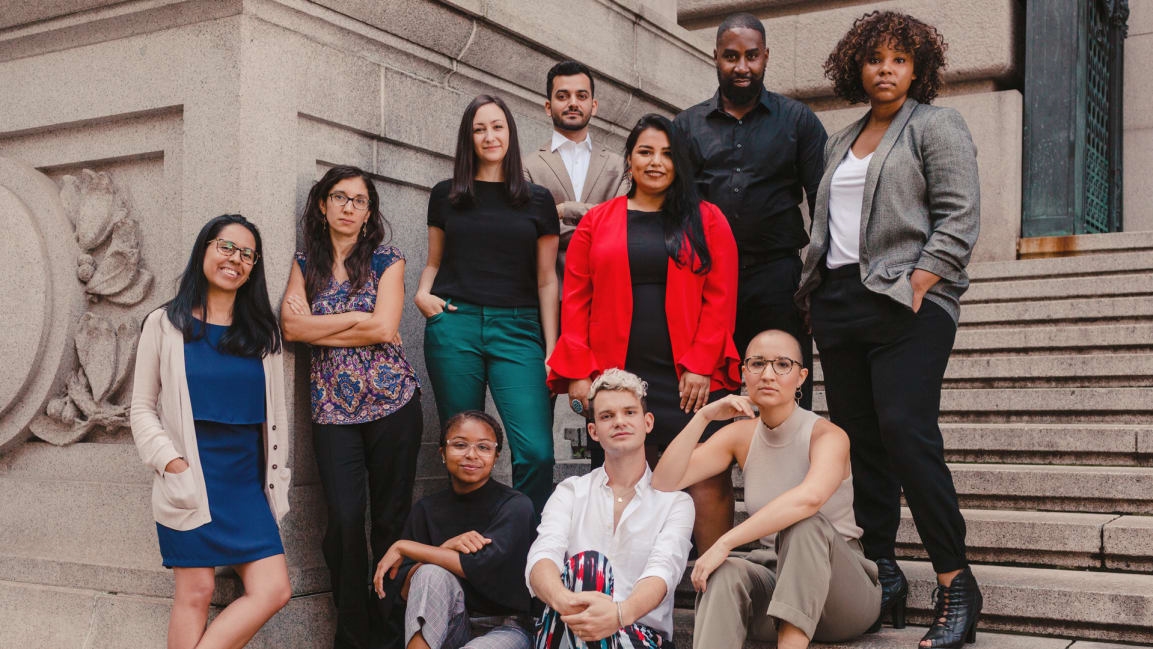This new ‘think and do tank’ is training the next generation of innovative policymakers
At a traditional think tank, the staff might be mostly older, mostly male, and mostly white, with education and connections from elite schools. A new startup that is calling itself a “think and do tank” is designed to support the next generation of policy leaders instead, focusing on finding new creative solutions to the challenges of immigration, climate change, criminal justice, education, and economic opportunity from a more diverse group of people.
Called Next100, the think tank takes inspiration from accelerators that work with social entrepreneurs. “Having spent time in the nonprofit space and the social entrepreneur space, I think we’re not necessarily bringing the same innovative, creative, disruptive approach to who develops policy, how policy is developed, and how policy changes actually happens,” says Emma Vadehra, the executive director of Next100 and a veteran of the Obama administration. “I think what is exciting is the opportunity to focus on these major policy levers for change, whether it’s about improving schools or fixing the immigration system or the climate crisis, but coming at it from a far more innovative approach.”
The Century Foundation, which launched the new organization, is investing $2 million in the project, which will support “policy entrepreneurs” for two years as they work on new ideas. The first cohort includes an Iraqi refugee who is interested in the ways that immigrants strengthen the U.S. economy, a climate activist who experienced the effects of climate change growing up in Florida, and an education advocate who experienced homelessness as a teenager. Each person in the program will be paid a full-time salary and given support to drive their own agenda and develop their own ideas.
Those ideas might not otherwise get the same attention; right now, even if a young activist realizes that policy jobs exist and that they want to work in the area, the path to actually have an influence is long. Someone might not be able to afford an unpaid internship in the field or have the right connections to get their first job. “Even if young people are lucky enough to get a foot in the door to somehow break through and get a junior role in a policy think tank or in government, they’re often basically functioning as sort of a research assistant or apprentice where their job is to learn stuff and support someone else who’s actually driving the agenda,” says Vadehra. “And then after they do, we don’t intentionally develop them. We don’t necessarily give them room to drive their own idea and their own agenda based on their own experiences or that of their peers.” A decade later, someone might have enough seniority to have influence—but by that point, they may have become so enmeshed in the system that they no longer have the same belief in the possibility of change.
It’s important, Vadehra says, that young people who want to work on better policy get the same support as those who are attempting to start social enterprises and other market-based solutions. Systemic challenges need systemic policy solutions, not just more tech startups working on apps. “I think one of the things we see at this moment in time is just how critical the role of policy is and just how much it . . . can make people’s lives dramatically better, or dramatically worse,” she says.
As the policy entrepreneurs go through the program, they’ll work with outside community partners to develop solutions and share them with policymakers. “Some of that is pretty similar to what traditional think tanks will do,” says Vadehra. “I think what we are expecting and hoping and seeing is they’re going to come at this in a far more different creative way and ask questions like, ‘Why do we write 40-page white papers that nobody reads? Wouldn’t a brief documentary be a more compelling way of making that point to that particular audience?’ And go try that instead. And just keep thinking about new and different ways to do research, develop ideas, share those ideas, and make change.”
(5)



